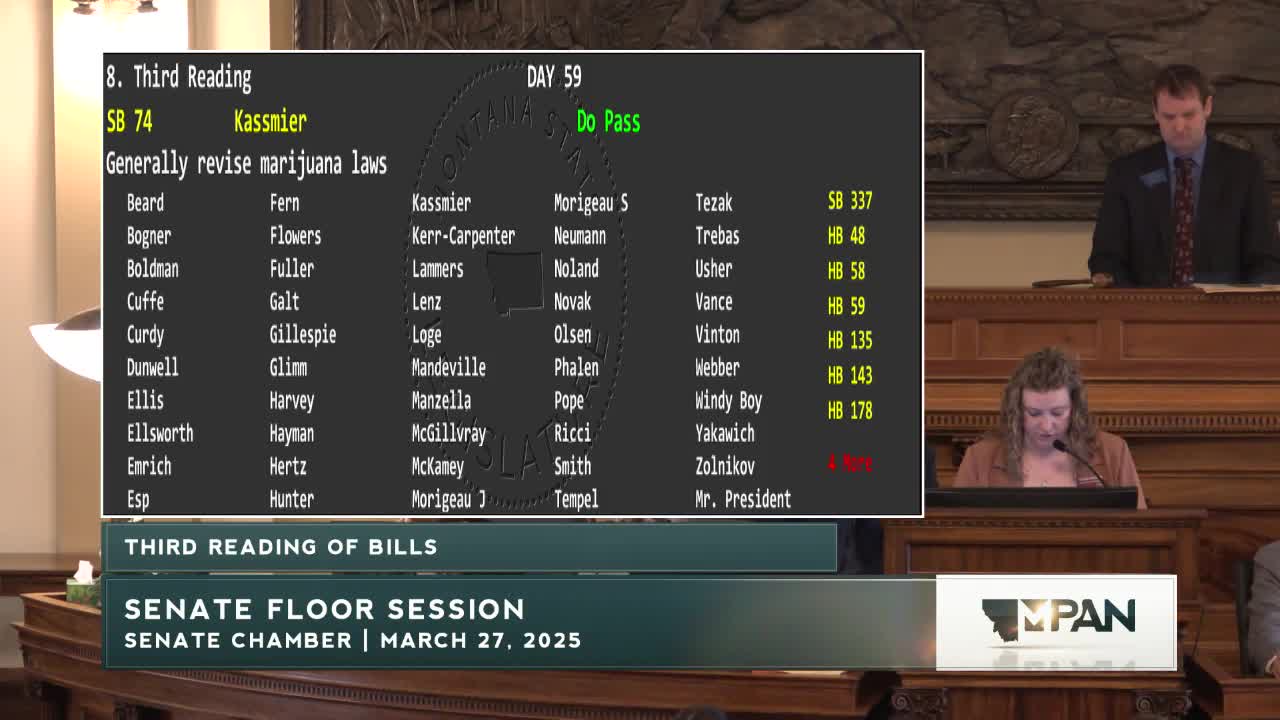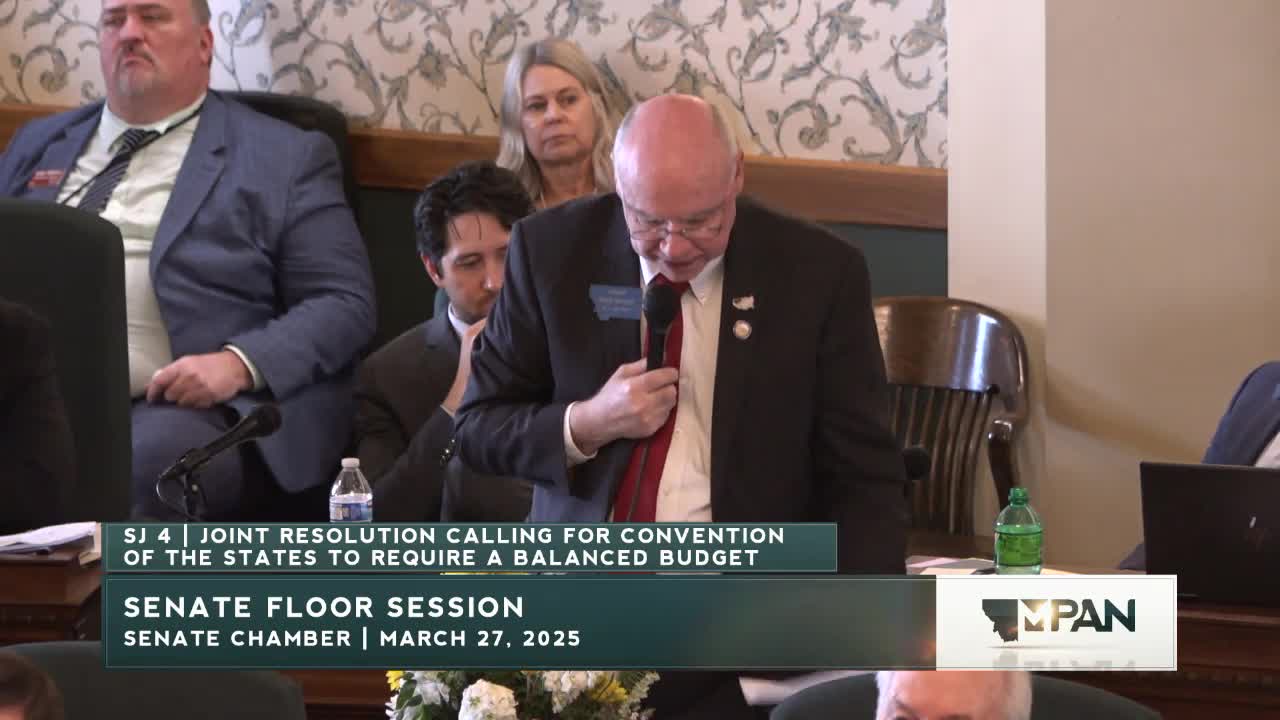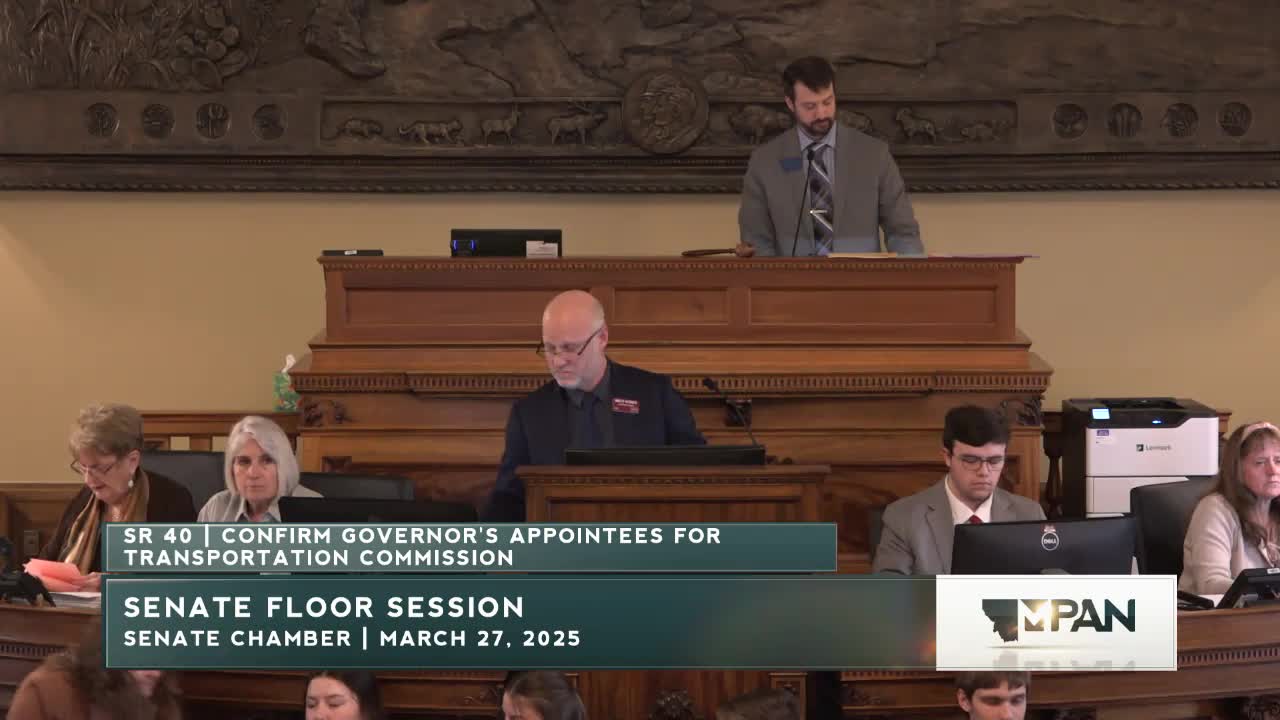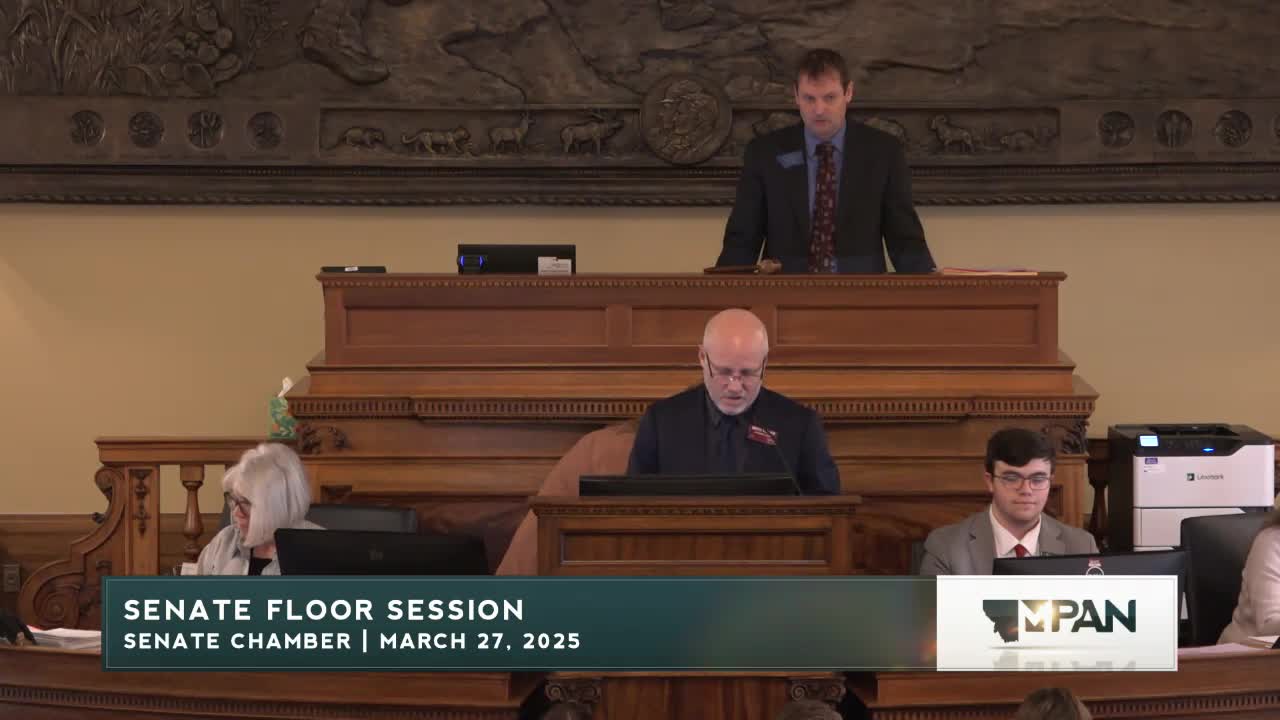Article not found
This article is no longer available. But don't worry—we've gathered other articles that discuss the same topic.

Votes at a glance: Summary of bills and roll-call outcomes, Montana Senate, March 27

Senate advances property-tax reform bill to slow growth in taxable value; bill passes committee on second reading 38–12

Montana Senate debates Article V call for balanced-budget convention; resolution indefinitely postponed

